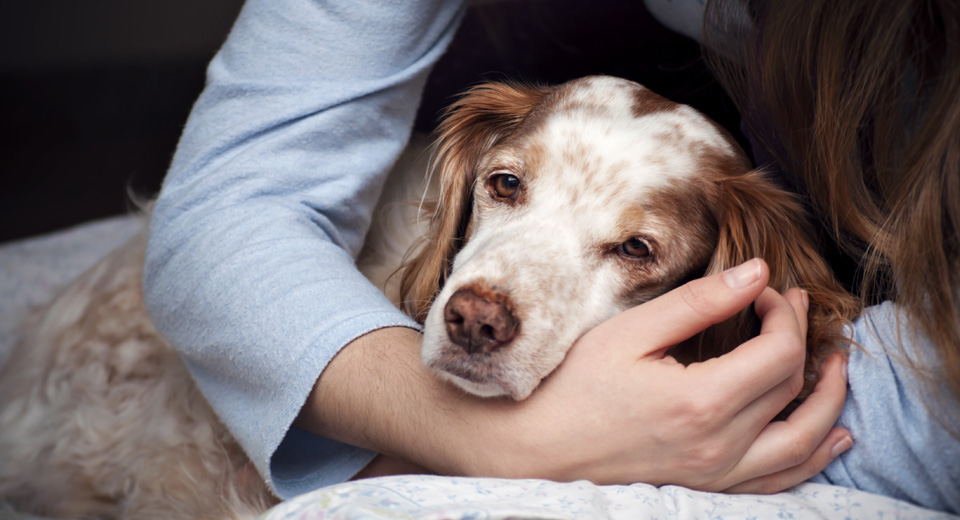
Pet parents who’ve had to make the difficult decision to euthanize a beloved animal companion are especially vulnerable to grief during the darker days of winter. What may complicate the situation further is witnessing the grief of companion animals left behind.
“Research suggests dogs and cats do experience behavior changes after the death of a fellow companion animal,” said Dr. Laurie Brush, founder of Heaven at Home Pet Hospice and Aftercare Center.
“A great advantage of home euthanasia is that it gives companion animals left behind a chance to process and understand what’s happened.”
In dogs, which are highly social animals, studies have shown that grief can last two to six months if they were closely bonded with their fellow pup. While less social generally, some cats do also grieve – and vocalize loudly – typically if they’ve lost a relative in particular.
According to research published in Animals by Dr. Jessica Walker, both dogs and cats were reported to demand more attention from their owners and/or display affiliative behavior, as well as spend time seeking out the deceased’s favorite spot.
Barbara King, an anthropologist who specializes in animal cognition, reported in Scientific American that signs of grief in dogs can be very similar to human grief: depression, withdrawal, sleep problems, decreased appetite, decreased activity, and increased anxiety. Sometimes, increased anxiety will show up as pacing or destruction of objects. Dogs may also vocalize and engage in inappropriate elimination. She recommends that instead of punishing these behaviors, it’s important to reassure your dog as much as possible with love and praise and gently discourage or redirect destructive behaviors.
More Ways to Help Your Grieving Pet
- If you have dogs who were bonded, consider getting another dog, or
- Arrange play dates with compatible dogs
- Note the cats may not have the same social needs as dogs
- Give extra treats, cuddles, attention, and let your pet sleep next to you
- Encourage activity for dogs, such as an extra walk
- Encourage engagement for both cats and dogs through games or other forms of enrichment
Remember that your pets will also reflect your own grief. Research has shown that the stress hormone, cortisol, is present in the fur of animals whose owners were stressed.
So be kind to yourself while grieving, and be kind to the pet left behind. Together your hearts will heal.
The West Michigan Pet Loss Support Group meets on the second Tuesday of each month from 6:30 – 8 p.m. For information on sessions, contact facilitator Ginny Mikita at 616.460.0373 or ginny@animalblessings.love
